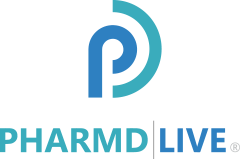The US healthcare system is designed to serve people with short-term, acute medical problems.
The system is less equipped to provide care to people with long-term chronic conditions.
The statistics are alarming. These patients “...account for 81% of hospital admissions; 91% of all prescriptions filled; and 76% of all physician visits”
The “Silver Tsunami”, as the aging of Americans has been coined, refers to the 80 million Baby Boomers becoming eligible for Medicare within the next ten years.
“Approximately 85 percent of older adults have at least one chronic health condition, and 60 percent have at least two chronic conditions, according to the Centers for Disease Control and Prevention (CDC).”
This is an immediate problem, as the increase in chronic cases is already putting a strain on our healthcare system.
Such high rates of chronic conditions are a financial drain on Medicare.
Because of the demographic shifts, primary care doctors would have been overwhelmed with appointments.
In 2011, the nation’s 76,000 pharmacists were activated to perform patient care and ease some of the crisis.
In view of the escalating health challenges of the chronically ill, as well as spiking costs, Medicare was compelled to act.
Medicare set out to create a program to improve health, manage costs and address the realities of the aging Baby Boom.
In 2015, Medicare created Chronic Care Management (CCM) to incentivize physicians to provide additional services to patients with more than one chronic illness.
These services included additional communication, coordination of providers, monthly check-ins, and help with medication.
Patient engagement could be by phone, virtually via telehealth, the latter two, as attempts to improve efficiency.
Medicare set $40 billion aside for CCM claims, and physicians were instructed to bill CCM time under new CPT Codes (See Below).
Further defined, CCM is a Medicare program that provides extra attention to patients with two or more chronic conditions.
Patients are typically elderly and are at high-risk for Adverse Drug Events (ADEs) and disease care gaps.
They benefit from practitioner contact, apart from office visits, where extra attention can be paid to their conditions and their medication regimen.
Patients remain on regular Medicare but benefit from these additional services. Only one provider may initiate a CCM relationship per patient.
In other words, CCM programs allow for only one Medicare billing relationship per patient.
CCM encourages care coordination between a physician and the patient’s ancillary practitioners, such as cardiologists, endocrinologists, labs, etc.
Given the vulnerable state of this population, CCM programs are important and life-extending.
CCM creates an expanded provider relationship, where the provider oversees a case in all facets, creates a Care Plan with specific medical goals, and, most importantly, manages the patient’s disease state and medications.
CCM incentivizes additional patient/provider communication, in an effort to stave off medical emergencies and improve patient outcomes.
Patients are able to contact their CCM provider to discuss their health issues, and symptoms or receive prescription assistance.
The central goals of CCM programs are to create more patient oversight by qualified practitioners and to ensure care continuity.
An obvious danger is that these patients may not be able to medically care for themselves.
CCM addresses that concern by providing a heightened check-in strategy, through compensated medical intervention.
Medicare maintains a list of qualifying conditions on the Centers for Medicare & Medicaid Services site (www.cms.gov), as well as reimbursement codes for activities in the care of CCM patients (see CPT codes, below). CCM also provides financial incentives for well-run CCM programs.
A provider can be reimbursed for spending time on the patient’s case, consulting, reviewing their medications, etc.
While CCM has been known to be complicated and difficult to implement, the financial advantages to practice are significant.
CCM helps improve quality measures, which positions physicians and practices for quality bonus payments up to 9% for FY 2021.
Who initiates CCM?
Most often, a Primary Care Physician sets up and administers the CCM program.
However, a physician in a specialty can be the ‘point person’ for a patient, setting up the CCM, and billing Medicare accordingly.
For instance, a Cardiologist or an Endocrinologist with ties to the patient might establish the CCM relationship.
CCM agreements are routinely administered by nurse practitioners, registered nurses or other qualified health care professionals or clinician staff.
Usually, 20 minutes per month is spent on the patient’s care (although depending on the risk assessment of the patient, it can be up to 40 or 60 minutes per session and 2-3 times per month).
This might take the form of calling other providers, checking lab work, or examining a medication list. Providers may bill all of this time to Medicare, using the appropriate codes.
The Five CPT Codes for CCM Services Include
- CPT 99490 – non-complex CCM is a 20-minute timed service by clinical staff to coordinate care across providers.
- CPT 99439 – each additional 20 minutes of clinical staff time spent providing non-complex CCM, directed by a physician or a qualified health care professional (billed in conjunction with CPT 99490).
- CPT 99487 – complex CCM is a 60-minute timed service by clinical staff to establish or substantially revise a comprehensive care plan that involves moderate to high-complexity medical decision-making.
- CPT 99489 – is used for an additional 30 minutes of clinical staff time, spent providing complex CCM, as directed by a physician or other professional (report in conjunction with CPT code 99487; cannot be billed with CPT 99490).
- CPT 99491 – CCM services are provided personally by a physician or other qualified health care professional for at least 30 minutes.
The many steps involved in setting up a CCM program and the time to manage a patient’s illnesses can become overwhelming.
CCM is complex and difficult for offices to adopt.
This explains why many physicians have declined to implement it.
CCM can be a welcome revenue stream for physicians, but if not managed well, can become a burden to the practice.
For example, programs that are not fully set up can become a drain on resources, where CCM staff expenses are not met, due to a lack of patients.
Practices have also reported CCM putting a strain on nurses who still had room responsibilities, and felt like they were pulled in two different directions; regular patient care and CCM care.
In those cases, practices felt that they should not sign additional CCM patients.
These are good examples of incomplete ‘homemade’ implementations of CCM.
Medicare probably did not foresee physicians forfeiting additional CCM revenue, due to the complexity of implementation.
From program inception, providers have enrolled approximately less than 5% of eligible patients in CCM programs!
This is due to a combination of factors: a lack of CCM awareness, lack of staff to start a program, a dearth of technology (e.g. telehealth), lack of time and training, and the general sense that CCM is complicated.
CCM patients can receive remote care through telehealth, or other technology, from doctors, APRNs, and other healthcare practitioners.
Because practices have elected to opt out of implementing their CCM programs, a number of companies have emerged, offering to outsource.
The companies serving this market all have different approaches to staffing.
For example, PharmD Live® has an approach that is unique to the industry.
PharmD Live is the only CCM company, that uses a network of clinical pharmacists as care providers.
For more than a decade, pharmacists have served outside of the confines of a pharmacy to attend to direct patient care.
Pharmacists are highly-trained in medication management and are skilled at keeping patients safe from ADEs.
PharmD Live also arms its clinical pharmacists with proprietary Artificial Intelligence technology, which can predictively seek out impending ADEs and disease care gaps.
Since medication is the cornerstone of chronic care, our staff and technology are focused on improving medication management and adherence.
The chronically ill typically take multiple medications, often prescribed by different doctors for their chronic conditions.
This is part of a looming crisis, especially as there is an 82% risk of an ADE when patients are placed on 7 or more medications.
Increased medical oversight for these patients is clearly indicated because ADEs is such a major problem.
In fact, they are the fourth-leading cause of death in the U.S.
Many of these senior patients suffer ADE’s for two primary reasons: either multiple providers double up on prescriptions, and/or the patient is sadly incapable of taking the correct regimen.
The underdosing, overdosing, and unintended mixing of good medications in this population is a profound risk to health and risk for the hospital admission.
Medical prescribers do not have perfect information and, in many cases, the patient may not remember prescriptions or recent medical visits.
PharmD Live approaches the inherent problems with this patient population with pragmatism and confidence.
We think where there are crucial medication-related problems, a Clinical Pharmacist is a strong candidate to oversee Medication Management.
Clinical Pharmacists have the training and understanding to assist, where prescription medicine compliance can mean life or death.
They can also help manage conditions and symptoms, often eliminating unnecessary trips to the hospital.
CCM patients, engaged with PharmD Live pharmacists, can contact these professionals with medical issues or medication questions, 24/7.
PharmD Live’s CCM solution complements and reinforces the physicians’ treatment plan and instructions to their patients.
Our CCM goals are to improve patients’ health and cement their ties to their own physicians.
CCM patients receive monthly phone engagement, initiated by the practitioner.
Conversations center around general health, symptoms, or prescriptions.
The practitioner will also create a Care Plan for the patient, including health goals.
In theory, the practitioner can contact all the patient’s other doctors or diagnosticians, effectively coordinating all care for their patient.
Computer time and research for the benefit of the patient are also reimbursable.
CCM practitioners are trained to listen for changes in the patient’s state of health and can verify and reinforce which drugs are being taken by the patient.
All of the activities we have just described are telehealth/telemedicine benefits and can be billed to Medicare.
In sum, these activities are critically life-preserving and enable the patient to spend more time with their loved ones at home.
Practices that provide CCM services can benefit both from a financial and a liability standpoint, especially if the program is sizable and professionally run.
Practices find that having records of contact with their most vulnerable patients is beneficial.
Numerous studies have found that CCM creates better medical outcomes and is a life-preserving program.
When professionally run, CCM means an additional profitable revenue stream for practitioners.
With Covid19 and MRSA, hospital stays – even ER visits – present risks of infection.
Today, keeping your vulnerable patients out of the hospital IS critical care.
In times when the hospital doesn’t always mean safety, the telehealth trend is keeping providers and patients safer.
Setting up a CCM program requires extreme diligence in contacting patients and considerable administrative time.
It can take up to a month, and sometimes more, to implement a Chronic Care program.
So with a great deal of time and effort, you can provide this care for your patients.
In most cases, the better business decision is to have a CCM company set up and administer your program.
A CCM business partner has all the tools, forms, and procedures to sign up most of your target patients.
Some can also handle patient-facing communications, creating a self-contained program.
In the case of PharmD Live, our patient-facing staff is clinical pharmacists, the recognized experts in medication management and drug interactions.
Our CCM pharmacists leverage industry-leading medication risk-management technology that enables early detection and prevention of medication complications.
Our clinicians provide 24/7 oversight and support via telemedicine for your Medicare patients.
This sets PharmD Live apart from other chronic care companies and positions our offering as the most comprehensive and robust in the nation.
PharmD Live’s 24/7 telehealth solutions are powered by a proprietary AI-Driven platform.
Predictive analytics and side-effect profiling algorithms enable the identification and prevention of potential medication risks and gaps in chronic care and generate actionable business and clinical intelligence reports.
PharmD Live’s technology is HIPAA-compliant and our solution seamlessly integrates with most EHRs, to enable a bi-directional patient data flow in real-time.
PharmD Live sees a significant opportunity for practices to expand care and increase practice revenue with telehealth in CCM for Medicare patients.
According to the Center for Medicare and Medicaid Services (CMS), effective CCM improves overall health and reduces the costs of care.
But there are significant advantages for practices that choose to enable CCM with the help of PharmD Live:
Delivering Results For Your Practice:
- Alleviate physician workload and burnout
- Additional revenue stream (direct & indirect)
- Improves 88 MIPS/APMS quality measures
- Improve patient satisfaction and loyalty
- Seamless EHR integration
- Decreases non-billable time for you and your staff
Delivering Results For Your Patients:
- Access to pharmacist 24/7/365
- Decreased medication-related events
- Improved disease self-management
- Reduced healthcare costs
- Decreased hospitalizations, ER visits and readmissions!
- Better quality of life
Improved Quality Measures and Transition to Value-Based Care:
- 88 MIPS measures impacted
- 19 ACO measures impacted
- Focus on Quadruple AIM
PharmD Live serves physicians, ACOs, and hospitals, using our multi-pronged approach: clinical pharmacists, medication management, disease management and AI-driven technology.
Our implementation team is highly-experienced, technically savvy, and can set your CCM up with the minimum disruption.
If you are thinking about limited time, limited resources, worries over red tape, CMS rules, technology investment, or uncertain financials, PharmD Live can help.
We provide the answers to these concerns with efficiency, experience, and the right telemedicine solutions.
Consider teaming with PharmD Live if you are seeking an experienced CCM partner who makes the process easy!
Learn more about how PharmD Live can help you implement a CCM program, to better manage your chronically ill patients and generate new revenue for your practice.









One Response
Thanks for sharing about Why Should Physicians Participate in Medicare’s Chronic Care Management?